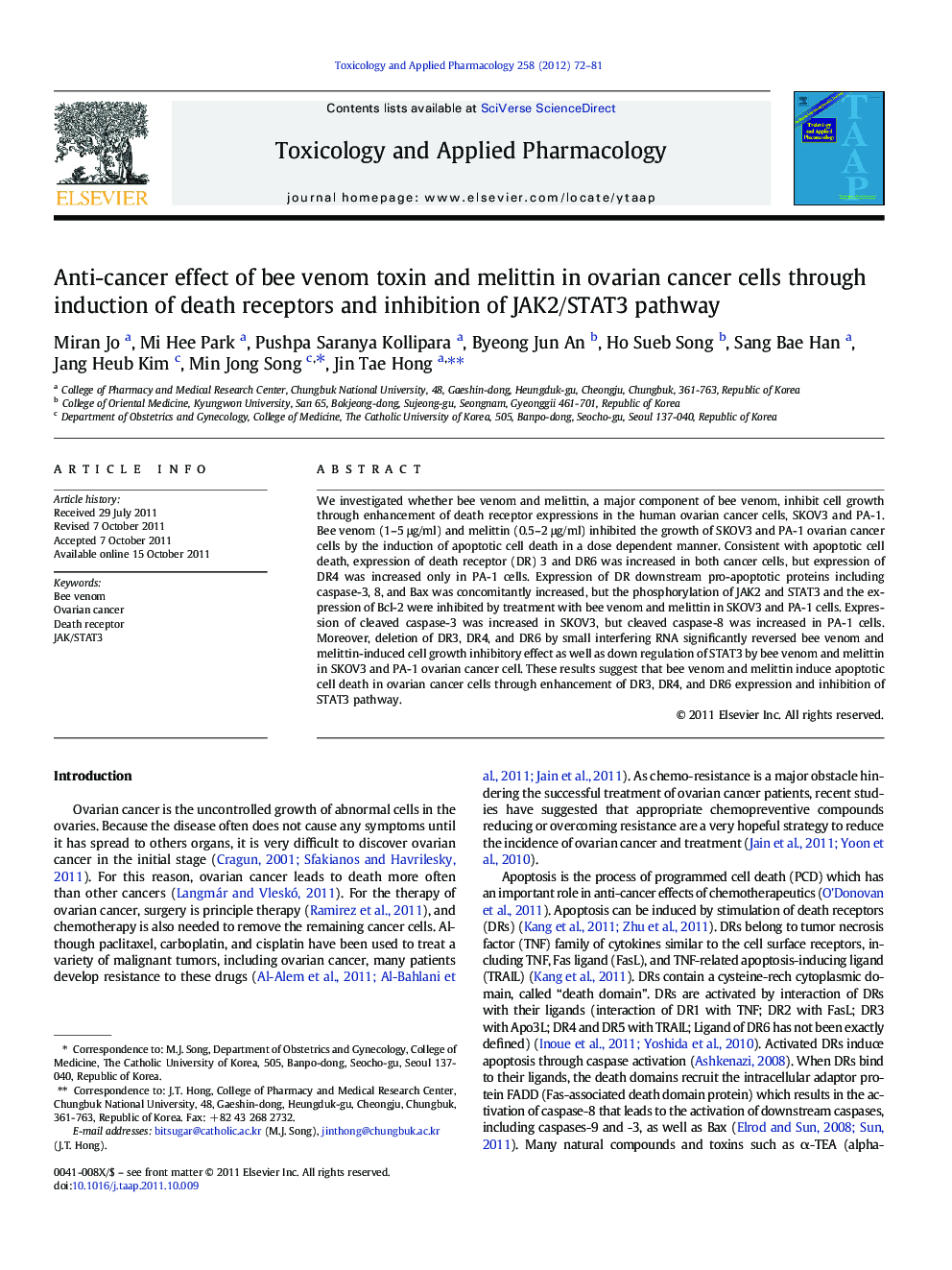| Article ID | Journal | Published Year | Pages | File Type |
|---|---|---|---|---|
| 2569408 | Toxicology and Applied Pharmacology | 2012 | 10 Pages |
We investigated whether bee venom and melittin, a major component of bee venom, inhibit cell growth through enhancement of death receptor expressions in the human ovarian cancer cells, SKOV3 and PA-1. Bee venom (1–5 μg/ml) and melittin (0.5–2 μg/ml) inhibited the growth of SKOV3 and PA-1 ovarian cancer cells by the induction of apoptotic cell death in a dose dependent manner. Consistent with apoptotic cell death, expression of death receptor (DR) 3 and DR6 was increased in both cancer cells, but expression of DR4 was increased only in PA-1 cells. Expression of DR downstream pro-apoptotic proteins including caspase-3, 8, and Bax was concomitantly increased, but the phosphorylation of JAK2 and STAT3 and the expression of Bcl-2 were inhibited by treatment with bee venom and melittin in SKOV3 and PA-1 cells. Expression of cleaved caspase-3 was increased in SKOV3, but cleaved caspase-8 was increased in PA-1 cells. Moreover, deletion of DR3, DR4, and DR6 by small interfering RNA significantly reversed bee venom and melittin-induced cell growth inhibitory effect as well as down regulation of STAT3 by bee venom and melittin in SKOV3 and PA-1 ovarian cancer cell. These results suggest that bee venom and melittin induce apoptotic cell death in ovarian cancer cells through enhancement of DR3, DR4, and DR6 expression and inhibition of STAT3 pathway.
► Some studies have showed that bee venom and/or melittin have anti-cancer effects. ► We found that bee venom and melittin inhibited cell growth in ovarian cancer cells. ► Bee venom and melittin induce apoptosis in SKOV3 and PA-1.
